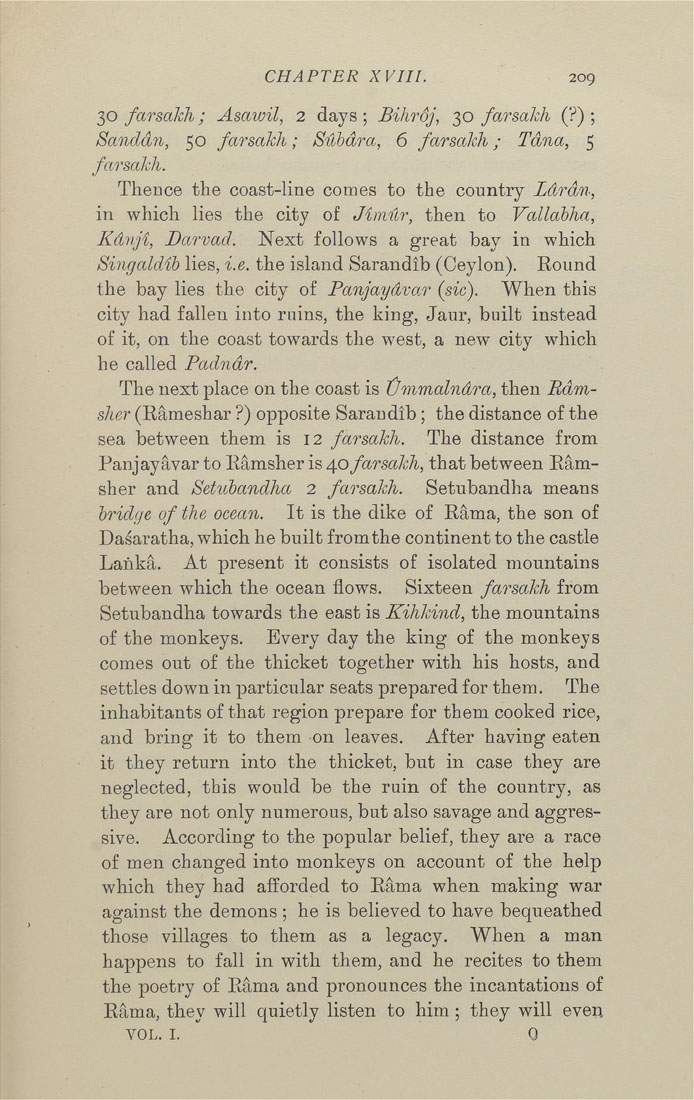Bīrūnī, Muḥammad ibn Aḥmad, Alberuni's India (v. 1)
(London : Kegan Paul, Trench, Trübner & Co., 1910.)
|
||
|
|
|
|
| Page 209 |

CHAPTER XVIII. 209 30 farsakh; Asawil, 2 days ; Biliroj, 30 farsakh (?) ; Sanddn, 50 farsakh; Subdra, 6 farsakh; Tdna, 5 farsakh. Thence the coast-line comes to the country Ldrdn, in which lies the city of Jinntr, then to Vallabha, Kdnji, Darvad. Next follows a great bay in which Singaldih lies, i.e. the island Sarandib (Ceylon). Round the bay lies the city of Banjaydvar (sic). When this city had fallen into ruins, the king, Jaur, built instead of it, on the coast towards the west, a new city which he called Badndr. The next place on the coast is ifmmalndra, then Bdm- slier (Rameshar ?) opposite Sarandib; the distance of the sea between them is 12 farsakh. The distance from Panjayavar to Ramsher is 4.0 farsakh, that between Ram- sher and Setuhandha 2 farsakh. Setubandha means bridge of the ocean. It is the dike of Rama, the son of Dasaratha, which he built fromthe continent to the castle Lanka. At present it consists of isolated mountains between which the ocean flows. Sixteen farsakh from Setubandha towards the east is Kihkind, the mountains of the monkeys. Every day the king of the monkeys comes out of the thicket together with his hosts, and settles down in particular seats prepared for them. The inhabitants of that region prepare for them cooked rice, and bring it to them on leaves. After having eaten it they return into the thicket, but in case they are neglected, this would be the ruin of the country, as they are not only numerous, but also savage and aggres¬ sive. According to the popular belief, they are a race of men changed into monkeys on account of the help which they had afforded to Rama when making war against the demons ; he is believed to have bequeathed those villages to them as a legacy. When a man happens to fall in with them, and he recites to them the poetry of Rama and pronounces the incantations of Rama, they will quietly listen to him ; they will even VOL. L 0 |
| Page 209 |







